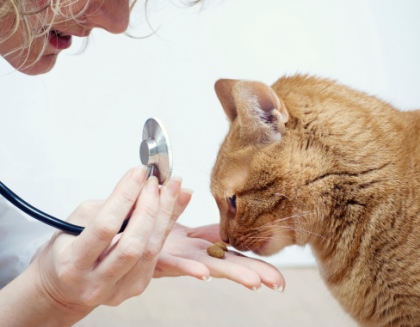
Companion Animals
Health Issues
Just like we do, our pets can suffer from illness, disease and other health issues and require proper care from the veterinarian and the pet owner. Whenever possible, prevention is always better than cure and this should go hand-in-hand with a healthy lifestyle and appropriate nourishment.
Below are links to useful information on some of the more commonly occurring diseases and health issues amongst pets.
Feline Leukaemia Virus
What is it?
FeLV is a virus that is often passed on from mother to kitten or through exposure to an infected cat’s saliva or other fluids. It is the leading viral killer of cats, with 80-90% of infected cats dying within 3-4 years.
Symptoms:
Most infected cats show no symptoms until the disease is at a more advanced stage. Multiple infections will occur due to the infected cat’s weakened immune system. Symptoms can include: fever, weight loss, decreased appetite and decreased activity.
Diagnosis and treatment:
There is no cure. Cats with FeLV can have their life extended and quality of life improved through regular veterinary care and dealing with the symptoms of illness as soon as they occur and as quickly as possible.
Can it be prevented?
Yes. First of all by avoiding being exposed to the virus and with regular testing for FeLV with all cats that go outside or can come into contact with other (possibly infected?) cats. All kittens should be vaccinated because kittens especially are highly susceptible to the infection. A vet will help to inform you more on vaccinating adult cats which will be dependent on the level of exposure.
Transmissible to people?
Yes - through the faeces of infected cats, but people often become infected by eating undercooked meat or unwashed/inadequately washed products. For pregnant women it can threaten the health of the unborn child – best way to prevent infection from cats is to avoid the cat litter.
